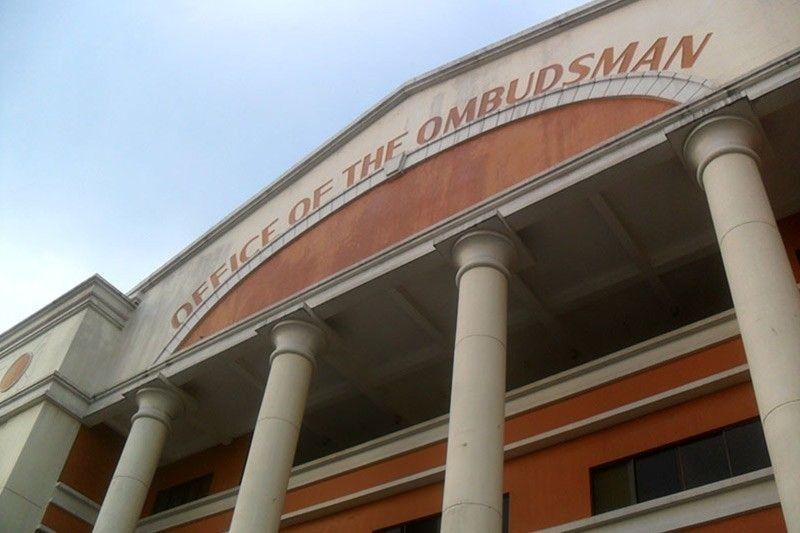Palace backs stopping lifestyle checks

MANILA, Philippines — Malacañang supports the move of the Office of the Ombudsman to stop the lifestyle checks on government officials suspected of stealing taxpayers’ money.
As a lawyer, presidential spokesman Harry Roque expressed belief that Ombudsman Samuel Martires has a point in directing the suspension of lifestyle checks to catch corrupt government officials.
“I think the ombudsman is correct since it’s easy to hide ill-gotten wealth. Maybe, there are times that corrupt ones will flaunt it. But times have changed; now they could live modest lives, even they could use dummies for their bank deposits and can pretend to have modest lives even if they have trillions and billions of ill-gotten wealth,” Roque said.
Lifestyle checks could be effective also, he added, “but we, of course, respect the decision of the ombudsman” since “it is a constitutional body.”
The Palace spokesman noted that there are other means of cornering corrupt officials and making them accountable under the law.
“And I think what (the ombudsman) considers as more important would be enforcement of the anti-money laundering law because that’s really the best way to determine if one’s income as a government employee can justify his assets that are hidden,” Roque said.
‘Lifestyle check not enough’
Justice Secretary Menardo Guevarra yesterday agreed with Martires’ opinion that a lifestyle check alone would not be enough to determine if a government official is corrupt.
While he understands Martires’ sentiment, however, Guevarra also believes that subjecting a government official to a lifestyle check could be helpful in determining if the person is engaged in any illegal activities and is corrupt.
“I fully understand where the honorable ombudsman is coming from. Indeed, a lifestyle check as a stand-alone measure will not conclusively indicate whether a person is engaged in some wrongdoing to enrich himself,” Guevarra said.
“A lifestyle check has to be intertwined with a much deeper process of investigating specific acts of corruption or other crimes. It is meant to strengthen a finding of wrongdoing, as manifested in the lifestyle of the person concerned,” he added.
The Department of Justice (DOJ) secretary admitted that in the course of their investigation on the anomalies and corruption inside the Philippine Health Insurance Corp. (PhilHealth), the task force also conducted a lifestyle check.
“Task Force PhilHealth commenced lifestyle checks as an adjunct of the fraud and corruption investigations. This is a continuing joint undertaking,” he said.
The task force led by the DOJ intends to file criminal charges against seven recently resigned and incumbent ranking officials of PhilHealth before the ombudsman as soon as the complaints and the collation of supporting documents are finalized.
Among those to be recommended for preliminary investigation is recently resigned PhilHealth president and chief executive officer Ricardo Morales.
Guevarra, however, said regardless of whether they, as public officials, could be subjected to a lifestyle check, they should strive to live simple lives.
“Government officials and employees, no matter how well-to-do or wealthy they are, are encouraged to live and project a modest life as public servants,” he added.
Withdrawing pending cases
Meanwhile, Martires has ordered state prosecutors to determine which cases pending at Sandiganbayan and other lower courts could be withdrawn supposedly “to assist the courts in unclogging their dockets.”
In his Office Circular 13 Series of 2020 dated June 15, Martires directed all the ombudsman’s graft investigation and prosecution officers (GIPOs) and assistant special prosecutors (ASPs) to review the cases that they are handling at the Sandiganbayan and other lower courts and determine which ones can be recommended for withdrawal based on any of his cited grounds.
Martires said prosecutors may recommend to him a case’s withdrawal if they think that it cannot successfully proceed to trial due to lack of or missing documentary evidence, if the witnesses can no longer be located and if the prosecution’s evidence does not strongly support its position.
He added that the case may also be recommended for withdrawal if the accused has already been administratively penalized for the same act or when any of the legal bases for the accused to file a motion to quash the case applies.
“The GIPOs and the ASPs shall submit to the undersigned their respective reports as to these cases clearly specifying the reason/s for the recommendation to withdraw the (case) information,” Martires said in his signed circular.
All the recommendations will be subjected to Martires’ final approval. – Evelyn Macairan, Elizabeth Marcelo
- Latest
- Trending





























